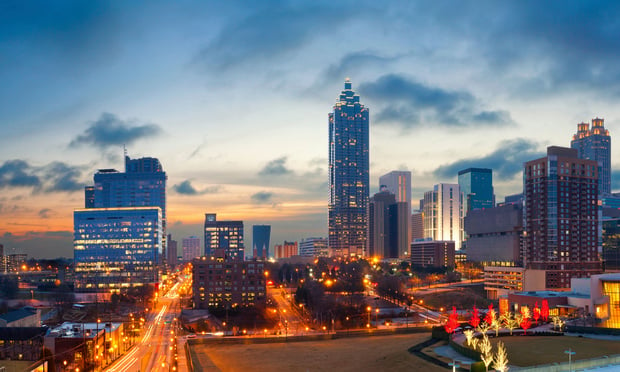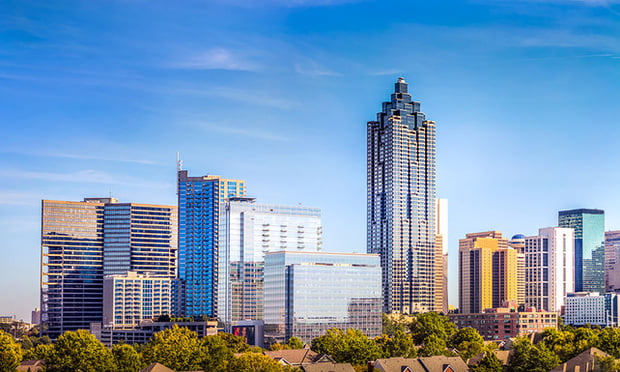ATLANTA— From development trends to cap rates to land concerns, forward-thinking developers are, well, thinking ahead to 2017 and beyond. Although technology is a big concern in the industry, that's only one of many.
GlobeSt.com caught up with Jim Ivie, a Franklin Street director specializing in tenant representation and site selection for clients throughout Georgia and the Southeast, to get his take on these topics in part two of this exclusive interview. You can still read part one: This German Discounter Is Expanding Rapidly And Other ICSC Takeaways.
GlobeSt.com: What is on the horizon for retail development?
Ivie: There was lots of discussion on mix-use spaces and how developers are designing their spaces based on the customer's experience. The goal for a retailer is to be able to “envision the experience from the exterior.”
They also have a great consideration for efficiency and the functionality of the space from where the vent hoods are located to where the trash cans are placed from the employee's perspective. Also, the emphasis on parking has changed with new technology.
In an urban environment, customers are more likely to utilize online transportation, like Uber and the use of parking spaces is not always needed. Many developers are building parking garages as multi-purpose spaces, as the use of cars declines in these areas.
GlobeSt.com: What trends are you seeing in regards to cap rates and investment sales?
Ivie: Cap rates remain low with strong interest from investors, especially for grocery-anchored centers filled with services like nail salons and boutique fitness concepts which bring traffic to a center multiple times a week. Value-add properties, especially in prime locations, are still very much of interest, but are extremely difficult to come by. With more big-box retailers shutting down or relocating to smaller footprints, power centers are the hardest sell to investors right now.
GlobeSt.com: In Atlanta, how are land prices impacting rents?
Ivie: Land prices in metro Atlanta continue to climb, which is driving up rental rates in newly developed and redeveloped properties in smaller markets with dense retail that typically haven't experienced this kind of rent growth before. For example, in Acworth, Georgia, asking rates are as high as $38 per square foot for a redeveloped property, and in Perry, Georgia, rates are reaching $35 per square foot. However, retailers and restaurants are agreeing to pay the cost, which is impacting the occupancy cost ratio and could cause issues in the coming years.
ATLANTA— From development trends to cap rates to land concerns, forward-thinking developers are, well, thinking ahead to 2017 and beyond. Although technology is a big concern in the industry, that's only one of many.
GlobeSt.com caught up with Jim Ivie, a Franklin Street director specializing in tenant representation and site selection for clients throughout Georgia and the Southeast, to get his take on these topics in part two of this exclusive interview. You can still read part one: This German Discounter Is Expanding Rapidly And Other ICSC Takeaways.
GlobeSt.com: What is on the horizon for retail development?
Ivie: There was lots of discussion on mix-use spaces and how developers are designing their spaces based on the customer's experience. The goal for a retailer is to be able to “envision the experience from the exterior.”
They also have a great consideration for efficiency and the functionality of the space from where the vent hoods are located to where the trash cans are placed from the employee's perspective. Also, the emphasis on parking has changed with new technology.
In an urban environment, customers are more likely to utilize online transportation, like Uber and the use of parking spaces is not always needed. Many developers are building parking garages as multi-purpose spaces, as the use of cars declines in these areas.
GlobeSt.com: What trends are you seeing in regards to cap rates and investment sales?
Ivie: Cap rates remain low with strong interest from investors, especially for grocery-anchored centers filled with services like nail salons and boutique fitness concepts which bring traffic to a center multiple times a week. Value-add properties, especially in prime locations, are still very much of interest, but are extremely difficult to come by. With more big-box retailers shutting down or relocating to smaller footprints, power centers are the hardest sell to investors right now.
GlobeSt.com: In Atlanta, how are land prices impacting rents?
Ivie: Land prices in metro Atlanta continue to climb, which is driving up rental rates in newly developed and redeveloped properties in smaller markets with dense retail that typically haven't experienced this kind of rent growth before. For example, in Acworth, Georgia, asking rates are as high as $38 per square foot for a redeveloped property, and in Perry, Georgia, rates are reaching $35 per square foot. However, retailers and restaurants are agreeing to pay the cost, which is impacting the occupancy cost ratio and could cause issues in the coming years.
Want to continue reading?
Become a Free ALM Digital Reader.
Once you are an ALM Digital Member, you’ll receive:
- Breaking commercial real estate news and analysis, on-site and via our newsletters and custom alerts
- Educational webcasts, white papers, and ebooks from industry thought leaders
- Critical coverage of the property casualty insurance and financial advisory markets on our other ALM sites, PropertyCasualty360 and ThinkAdvisor
Already have an account? Sign In Now
*May exclude premium content© 2024 ALM Global, LLC, All Rights Reserved. Request academic re-use from www.copyright.com. All other uses, submit a request to [email protected]. For more information visit Asset & Logo Licensing.









